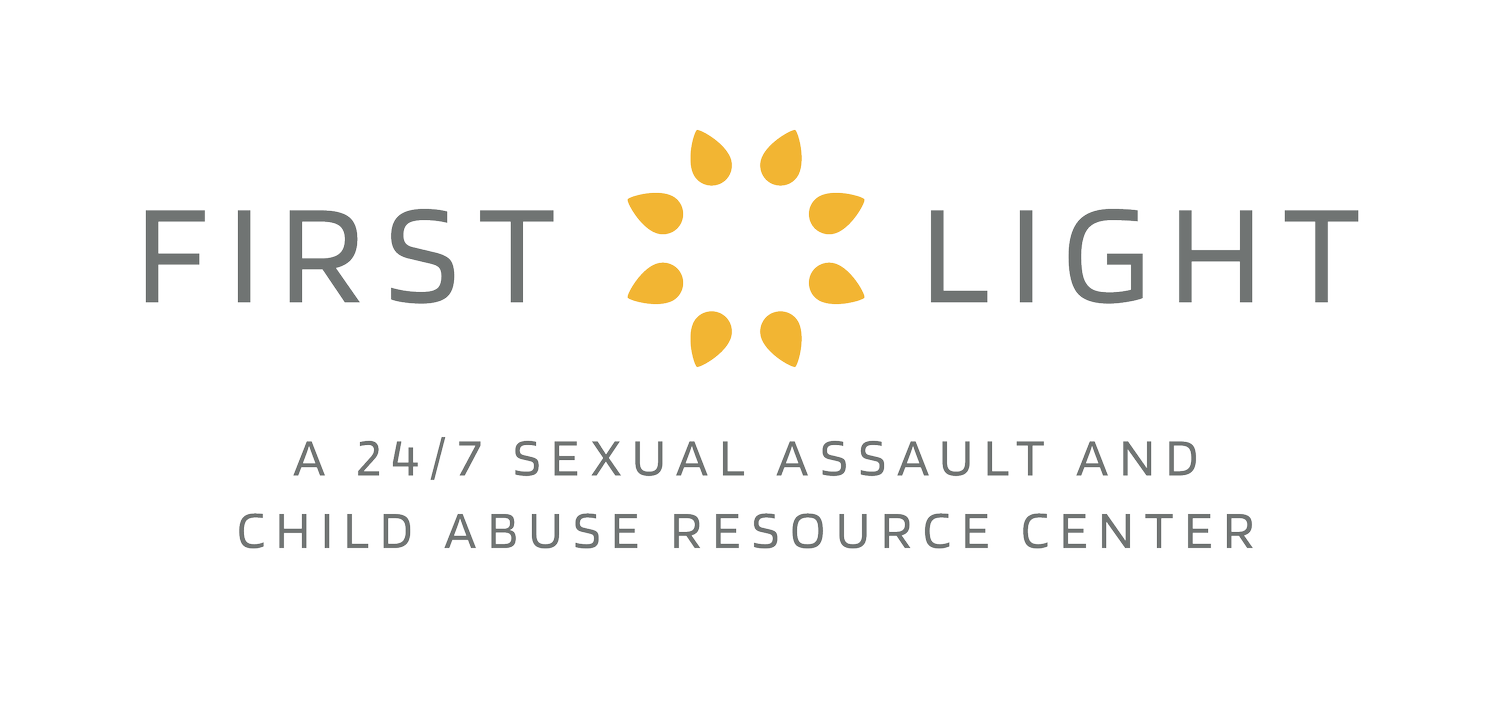Words Matter
I recently applied for a Venmo account for First Light. When you fill out your agency information, it asks you to include keywords that describe your organization to help people find you. I typed out each of the words and hit submit. It said I had an obscene word. I took the word “rape” out and resubmitted. Lo and behold, it worked.
Last year on Giving Tuesday, Meta suspended our account for reasons that were never fully clear to us. We assumed it was because we were posting too much in a short time. In truth, it turns out we were “shadow banned” for multiple posts with “obscene” language.
If you’re on social media – particularly video-heavy sites like TikTok and Instagram – you may have noticed people self-censoring words in unusual ways. “Sex” has become “seggs”. “Kill” has become “unalive”. “Rape” has been replaced by “grape”, the grape emoji, or “SA” which is a shortened (and censored) way to say “sexual assault”. If you do a quick Google search, you’ll learn that these people are trying to “beat the algorithm”.
For social media purposes, an algorithm is a set of rules, signals, and data that govern the platform’s operations. Certain words are banned by the algorithm, but no comprehensive list of these words exists. It is a process of trial and error to determine which words the algorithm doesn’t like.
Social media platforms have been waging war against violent content for years, so it makes sense that those companies would choose to censor words with violent connotations. This is especially true of “rape” which has become a threat to some and a joke to others. On the other hand, this censorship is making a subject that has been traditionally deemed inappropriate to discuss even more difficult to discuss on what should be a widely reaching, easily accessible platform.
The taboo existed long before social media came along. Out of every 1000 sexual assaults, only 310 are reported to law enforcement. 50 of those reports will lead to an arrest and only 28 will lead to a felony conviction. This statistic is always startling and indicative of so many things that are wrong with the way our current system is built. But more importantly, it shows that we are already wary of talking about this topic.
But it isn’t just the taboo of the rape and sexual assault. It’s also the taboo of certain body parts. Nearly every child (and adult!) has a nickname for their private parts. Well-meaning parents across the world have been helping children nickname their body parts for decades. And yes, these names can be cute and creative! But these nicknames are doing a disservice to our children.
Our laws in South Carolina are written in such a way that knowing the difference between something being “in” your body versus something being “on” your body can be the difference between a felony and a misdemeanor. If a child doesn’t have words – doesn’t even understand that something can go “in” their body that way – then the State cannot pursue the maximum punishment for the offender. If we can give our children the appropriate words to describe their bodies, we give them a leg up in our current system. Because being able to prove that there was something inserted into a child’s body – however slight that insertion might be – can be the difference between a felony and a misdemeanor in South Carolina.
We don’t need code words and veiled innuendos when talking about rape or sexual assault. We certainly don’t need them when we’re talking about body parts. Because if we are going to make meaningful progress in sexual assault prevention and victim advocacy, we cannot be afraid to say the words that go along with it.
Want to learn how to talk to your children about their bodies? Give us a call or visit our Community Education page to learn more!
